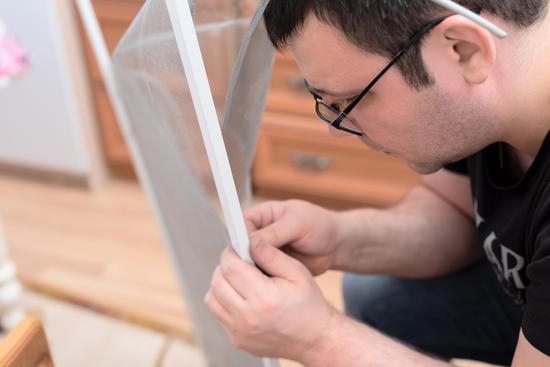What home improvement are tax deductible? Understanding tax deductible home improvements is essential for homeowners and property owners looking to maximize their tax benefits.
This section will provide an in-depth explanation of what tax deductible home improvements are, how to determine if a home improvement qualifies for a tax deduction, and common misconceptions about tax deductible home improvements. By understanding the criteria for tax deductible home improvements, individuals can make informed decisions about their property upgrades and potential tax benefits.
Tax deductible home improvements encompass a wide range of projects that can potentially qualify for tax deductions. It is crucial for homeowners to have a clear understanding of the types of home improvements that are eligible for tax deductions, as well as the criteria for determining if a specific project qualifies. By choosing tax deductible home improvements, individuals can benefit from potential cost savings and advantages when it comes to filing their taxes.
Additionally, it’s important to be aware of home improvements that do not qualify for tax deductions and the reasons behind these exclusions. Understanding which expenses may not be eligible for tax deductions can help homeowners make informed decisions about their property upgrades while considering alternative options. By properly documenting and reporting home improvement expenses for tax purposes, individuals can ensure compliance with applicable laws and regulations while seeking to maximize their deductions.
Types of Home Improvements That Are Tax Deductible
When considering home improvements, many homeowners wonder what home improvements are tax deductible. It is essential to understand that not all home improvements qualify for tax deductions. However, there are certain types of home improvements that are eligible for tax deductions. These tax-deductible home improvements can provide financial benefits to homeowners while adding value to their property.
Examples of home improvements that are typically eligible for tax deductions include energy-efficient upgrades, such as installing solar panels, geothermal heat pumps, or energy-efficient windows and doors. These types of improvements may qualify for federal tax credits, providing homeowners with a direct reduction in the amount of income tax they owe. Additionally, medical modifications to a home for accessibility reasons may also be eligible for tax deductions if they meet specific criteria.
In order for a home improvement to qualify for a tax deduction, it must meet certain criteria established by the Internal Revenue Service (IRS). The improvement must be considered a capital improvement that adds value to the property or prolongs its useful life.
Additionally, the improvement must be directly related to the need for medical care or meet energy efficiency standards set by the government. It’s important to keep accurate records and documentation of all expenses related to the qualifying home improvements in order to claim the deduction accurately on your taxes.
Choosing tax-deductible home improvements can offer several benefits to homeowners beyond just the initial cost savings. Not only do these improvements reduce taxable income and potentially provide direct credits against taxes owed, but they can also increase the overall value and appeal of a property. By carefully selecting eligible home improvements that align with IRS guidelines, homeowners can enjoy both immediate and long-term financial advantages while enhancing their living space.
| Tax Deductible Home Improvement | Eligibility Criteria |
|---|---|
| Energy-Efficient Upgrades (Solar Panels, Geothermal Heat Pumps) | Must meet federal energy efficiency standards and qualify for applicable tax credits/ incentives |
| Medical Modifications for Accessibility | Must be specifically prescribed by a medical professional and directly related to an accessibility need |
Home Improvements That Are Not Tax Deductible
When it comes to home improvements, it’s important to understand which expenses can be considered tax deductible and which ones are not. While many homeowners may hope to benefit from tax deductions for their renovation projects, there are certain home improvements that do not qualify for this tax advantage.
One common misconception is that all home improvements automatically result in tax deductions. However, the reality is that only specific types of home improvements are eligible for tax deductions. Generally, repairs and maintenance are not considered tax deductible, as they are seen as necessary upkeep rather than increasing the value of the property.
Another category of home improvements that typically do not qualify for tax deductions includes any personal upgrades or cosmetic changes that do not add significant value to the home. For example, adding a swimming pool or installing luxury features may not be eligible for tax deductions, as these enhancements are often viewed as personal preferences rather than essential property improvements.
It’s important for homeowners to be aware of these distinctions when planning their home improvement projects. Understanding what qualifies for tax deductions can help them make informed decisions and avoid potential disappointment when claiming expenses during tax season. In cases where certain renovations do not meet the criteria for tax deductible home improvements, homeowners can explore alternative options for financing their projects.
| Tax-Deductible Home Improvements | Non-Tax Deductible Home Improvements |
|---|---|
| Energy-efficient upgrades (e.g. solar panels, energy-efficient windows) | Cosmetic changes (e.g. landscaping, interior decoration) |
| Accessibility modifications (e.g. wheelchair ramps, grab bars) | Personal preference upgrades (e.g. swimming pools, luxury features) |
| Structural improvements (e.g. roofing, flooring) | Maintenance and repairs (e.g. fixing leaks, repainting) |
Tax Deductible Home Improvement Expenses
Understanding the expenses that are tax deductible for home improvements is crucial for homeowners looking to maximize their tax benefits. It is important to note that not all home improvement expenses are eligible for tax deductions, so understanding which costs can be deducted is essential.
Eligible Expenses for Tax Deductible Home Improvements
In general, eligible expenses for tax deductible home improvements include any costs associated with making a home more energy-efficient, accessible for people with disabilities, or safer. This can include the cost of materials, labor, and any expenses related to obtaining necessary permits or inspections. Additionally, expenses incurred for repairs and renovations that increase the value of the home may also be eligible for tax deductions.
Documenting and Reporting Home Improvement Expenses
To ensure that you can claim deductions for home improvement expenses, it is important to keep detailed records of all related costs. This includes collecting receipts, invoices, and contracts from contractors or service providers. When reporting these expenses on your tax return, accuracy and thorough documentation are key. Failing to properly document and report these expenses can result in potential audits or penalties from the IRS.
Compliance With Tax Laws and Regulations
Homeowners should also make sure that they are in compliance with all applicable tax laws and regulations when claiming deductions for home improvements. Staying informed about changes in tax laws affecting home improvement deductions is crucial to avoid any legal issues. Working with a professional tax advisor or accountant can help ensure that you are following the rules and maximizing your tax benefits while staying within the bounds of the law.
By understanding what home improvement expenses are eligible for tax deductions and how to properly document them, homeowners can take full advantage of this opportunity to offset the costs of improving their homes while complying with tax laws.
Maximizing Tax Deductions for Home Improvements
When it comes to home improvements, many homeowners are often left wondering what home improvement are tax deductible. Understanding and maximizing tax deductions for home improvements can help homeowners offset the costs of remodeling, renovations, and repairs. By taking advantage of eligible tax deductions, homeowners can effectively lower their overall expenses and potentially save money on their annual tax bill.
To maximize tax deductions for home improvements, homeowners should consider the following:
- Keep detailed records: Maintaining thorough documentation of all home improvement expenses is essential for claiming tax deductions. This includes receipts, invoices, contracts, and any other relevant paperwork.
- Research eligible expenses: Certain home improvement expenses may be eligible for tax deductions, such as energy-efficient upgrades or accessibility modifications. It’s important to research and identify which expenses qualify for deductions.
- Consult with a tax professional: Seeking guidance from a qualified tax professional can provide valuable insight into maximizing tax deductions for home improvements. A professional can offer personalized advice based on individual circumstances and help homeowners navigate complex tax rules and regulations.
In addition to these strategies, homeowners should also explore potential tax credits related to home improvements. For example, certain energy-efficient upgrades may qualify for federal or state tax credits, providing additional financial benefits. By taking a proactive approach to understanding and optimizing tax deductions for home improvements, homeowners can make informed decisions that have long-term financial advantages.
Recent Changes in Tax Laws Affecting Home Improvement Deductions
Overview of Recent Changes
In recent years, there have been significant changes in tax laws that directly impact the eligibility of home improvement deductions. It is important for homeowners to stay informed about these changes in order to make informed decisions regarding their home improvement projects. Whether it’s alterations to the tax code, updates on qualifying expenses, or modifications to deduction limits, staying up to date with these changes is crucial.
Impact of Tax Law Changes
The impact of these tax law changes can be substantial for homeowners seeking tax deductions for their home improvements. Understanding how these changes affect deduction eligibility, expense limitations, and overall tax benefits is essential for planning and budgeting purposes. Failure to adapt to the new tax laws could result in missed opportunities for valuable deductions and cost-saving benefits.
Adjusting Home Improvement Plans
With recent changes in tax laws affecting home improvement deductions, homeowners may need to adjust their home improvement plans accordingly. This may involve reevaluating project timelines, budgets, and even the types of improvements being considered. By working closely with financial professionals and taking into account the latest tax regulations, homeowners can make strategic adjustments to their plans that maximize available deductions while maintaining compliance with current laws.
Consultation With Tax Professionals for Home Improvement Deductions
When it comes to determining what home improvement are tax deductible, consulting with tax professionals can provide valuable guidance and insight. Tax professionals are well-versed in the complex rules and regulations surrounding tax deductions for home improvements, and can help homeowners navigate the process effectively. Here are some reasons why seeking professional advice for tax deductible home improvements is beneficial:
- Expertise in Tax Laws: Tax professionals have in-depth knowledge of current tax laws and regulations, including those related to home improvement deductions. They can provide accurate information on eligible expenses, criteria for qualification, and recent changes in tax laws that may impact deductions for home improvements.
- Optimizing Deductions: By working with a tax professional, homeowners can maximize their tax deductions for home improvements. Professionals can identify all eligible expenses, ensure proper documentation and reporting, and utilize strategies to offset the costs of home improvements through tax benefits.
- Compliance Assurance: Claiming deductions for home improvements involves adhering to specific tax laws and regulations. Tax professionals can help homeowners ensure compliance with these requirements, reducing the risk of errors or audit-related issues.
Choosing the right tax professional for guidance on home improvement deductions is essential for maximizing benefits and minimizing potential risks. When selecting a tax professional, consider their expertise in handling home improvement-related tax matters, their track record of providing effective guidance to homeowners, and their ability to communicate complex tax concepts in a clear and understandable manner.
Ultimately, consultation with a tax professional can offer peace of mind and confidence when it comes to claiming deductions for home improvements. By leveraging their expertise and experience, homeowners can navigate the complexities of tax laws while maximizing the financial benefits of eligible home improvement expenses.
Case Studies
In conclusion, understanding what home improvements are tax deductible is essential for homeowners looking to maximize their tax benefits while enhancing their living spaces. By being knowledgeable about the criteria for tax deductible home improvements, individuals can make informed decisions about which projects to undertake. It’s important to keep in mind that not all home improvements qualify for tax deductions, so homeowners should familiarize themselves with the types of improvements that are eligible and those that are not.
When considering tax deductible home improvements, it’s crucial to properly document and report all expenses related to the project. This includes keeping detailed records of receipts, contracts, and other relevant documents to support any claims for deductions. Additionally, recent changes in tax laws can impact the eligibility of certain home improvement expenses for deductions, so staying up-to-date on these changes is crucial.
Seeking professional advice from a tax professional is highly recommended when navigating the complexities of tax laws and regulations related to home improvement deductions. Tax professionals can provide valuable guidance on how to maximize deductions and ensure compliance with all applicable rules.
By working closely with experts in this field, homeowners can optimize their tax benefits while making strategic decisions about their home improvement projects. Ultimately, being well-informed and seeking professional assistance can help homeowners make the most of available tax deductions for their home improvements.
Frequently Asked Questions
What Home Improvements Are Tax Deductible IRS?
Home improvements that are tax deductible by the IRS are typically related to medical necessity or energy efficiency. For example, modifications made for medical reasons such as adding ramps or widening doorways may be deductible, as well as upgrades for energy efficiency such as installing solar panels.
Can I Deduct New Flooring on My Taxes?
Generally, you cannot deduct the cost of new flooring on your taxes unless it is directly related to a qualifying medical expense or home improvement for energy efficiency. Standard flooring upgrades for aesthetic purposes do not usually qualify for tax deductions.
Is a Bathroom Remodel Tax Deductible?
A bathroom remodel is typically not tax deductible unless it is done for medical necessity or to improve the energy efficiency of the home. If the remodel includes features that are necessary for medical reasons, such as adding grab bars or a walk-in bathtub, these expenses may be deductible.

I’m thrilled to have you here as a part of the Remodeling Top community. This is where my journey as an architect and remodeling enthusiast intersects with your passion for transforming houses into dream homes.





